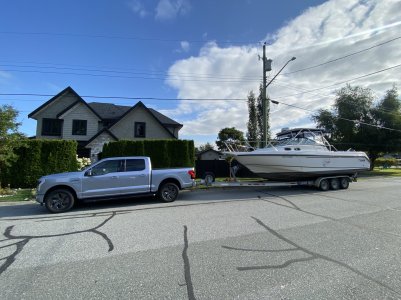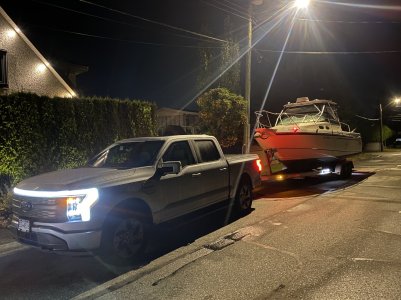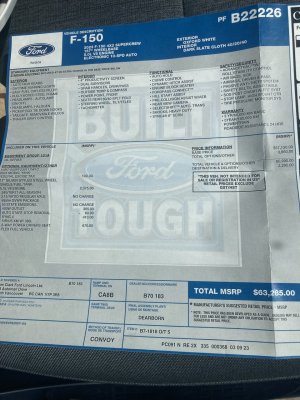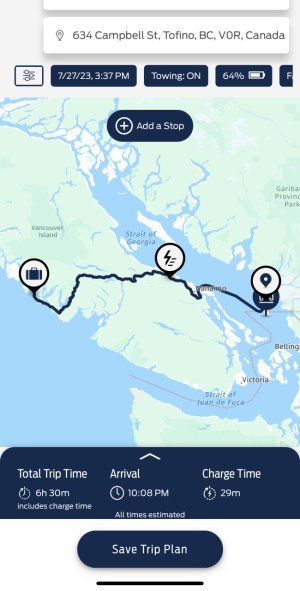sly_karma
Crew Member
I drove my F150 Lightning home yesterday. It was a long road to ownership:
- reservation placed 5/25/21
- order placed 2/1/22 (for a 2022 model)
- order placed 8/15/22 (for a 2023 model)
- "in production" 5/1/23
- built 6/4/23
- shipped 6/16/23
- at dealer 7/14/23
This thread is going to be about owning, driving and USING an electric truck. No EVangelising, just an honest appraisal of a type of vehicle both new and familiar to most of us. If it does stuff I don't like, I'll say so. Promise.
--------------
After a recent reduction, Lightnings are almost back to their original 2022 prices. I paid $69,000 plus on road costs for the XLT trim level with a Standard Range battery with official range of 390 km.
I drive 24,000 km annually, with 85% of that being around the Okanagan for work and local recreation. The truck will charge at home at night for the great majority of its use, so I didn't see value in a further $16,000 for the Extended Range battery with just 100 km more driving. Not to mention the additional weight carried around all year, needed or not.
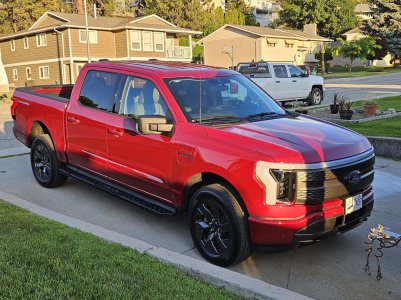
- reservation placed 5/25/21
- order placed 2/1/22 (for a 2022 model)
- order placed 8/15/22 (for a 2023 model)
- "in production" 5/1/23
- built 6/4/23
- shipped 6/16/23
- at dealer 7/14/23
This thread is going to be about owning, driving and USING an electric truck. No EVangelising, just an honest appraisal of a type of vehicle both new and familiar to most of us. If it does stuff I don't like, I'll say so. Promise.
--------------
After a recent reduction, Lightnings are almost back to their original 2022 prices. I paid $69,000 plus on road costs for the XLT trim level with a Standard Range battery with official range of 390 km.
I drive 24,000 km annually, with 85% of that being around the Okanagan for work and local recreation. The truck will charge at home at night for the great majority of its use, so I didn't see value in a further $16,000 for the Extended Range battery with just 100 km more driving. Not to mention the additional weight carried around all year, needed or not.



